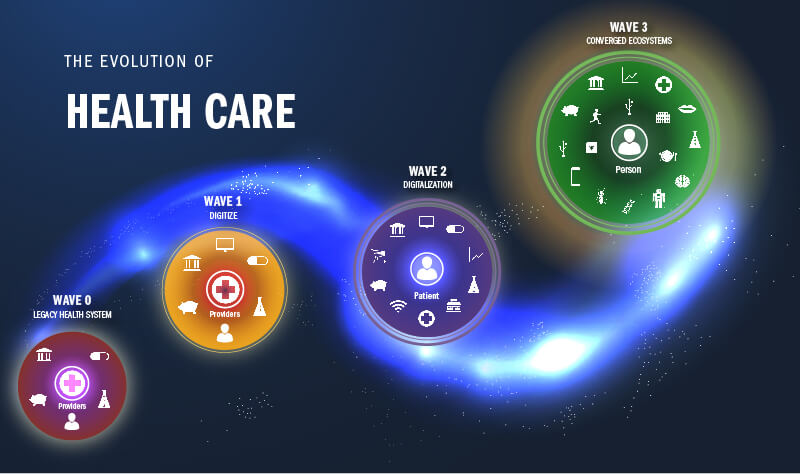DHA is improving health care delivery to our service members and their families through innovation. We're identifying transformative technologies to apply to our entire health care enterprise.
Through our focus on technology, patient-centered care, mental health, collaboration, and military readiness, DHA ensures Military Health System beneficiaries are receiving the best possible care.
Looking to partner with us? Have ideas on how to collaborate with us?
Email Us

Technology and Digital Health
We're making strides leveraging advances in technology and digital health solutions. These strides improve access to care, streamlines processes, and enhances patient outcomes. How are we doing this? We're taking full advantage of new developments in telemedicine, mobile health apps, and remote monitoring.
Patient-centered Care
We're committed to improving patient-centered care. How are we doing this? We're involving patients and their families in the decision-making process, providing education and resources so patients are empowered to take command of their own health. We're tailoring the care we deliver to meet their needs. Our mission is to make extraordinary experiences ordinary and exceptional outcomes routine.
Mental Health Care
We're actively addressing the mental health needs of our service members and their families. How are we doing this? We're looking for innovative ways to improve mental health care services and resources, while working to reduce the stigma around mental health.
Collaboration and Partnerships
We're aiming to enable a culture of innovation focused on delivering improved health care to our MHS beneficiaries. How are we doing this? We're fostering partnerships with industry, academia, the non-profit sector, and collaborating with other government agencies.
Military Readiness
We support military readiness by delivering great health care to our beneficiaries at our military hospitals and clinics. How are we doing this? By developing new approaches to health care delivery we're supporting the unique needs of our service members and their families.
The Evolution of Health Care
“Our vision of the future is one where [we] are liberated by technology rather than burdened by it…We are going to meet the patients where they are. Anytime. Anywhere. Always.” – U.S. Army Lt. Gen. Telita Crosland, DHA Director.
Watch Lt. Gen. Crosland's presentation from the 2023 AMSUS annual meeting on DVIDS.
Wave 0 - Legacy Health System
 Siloed, Brick/Mortar
Siloed, Brick/Mortar- Health Care System Centric
- Little Actionable Data
- Misaligned Incentives
- Volume Based Reactive/Disease Based
- Point of Care = Point of Need
Wave 3 - Converged Ecosystems
 Virtual = Live
Virtual = Live- Empowered Patient
- Smart Data, Actionable Insights
- Seamless Digital Experience
- Value Based Care
- Proactive/Wellness Based
- Point of Care = Point of Need